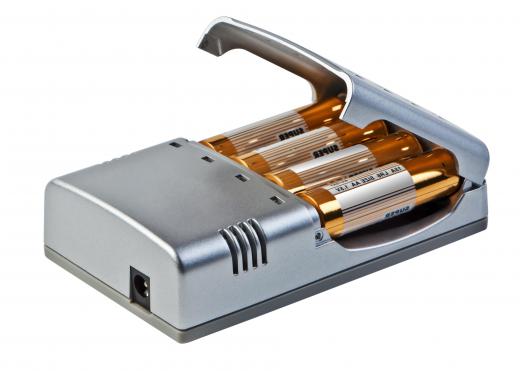A thumb screw is a type of screw or bolt which has an over-sized head with a knurled or diamond-patterned grip finish or large wing type blades that allow the screw to be tightened or loosened by hand. This type of fastener is used in applications in which a device may require frequent removal and re-installation, such as a safety cover or any number of electronic devices. This type of screw makes it possible to remove the fasteners by simply twisting them with a thumb and forefinger.
In most applications, a thumb screw is actually a bolt. A screw by nature is pointed and is used to create its own threads when screwed into wood or sheet metal. The typical screw is a blunt-nosed bolt that is fastened into a threaded hole. The benefit of the thumb screw is the ease of removal as well as installation with no tools required.

The battery cover on many small electronic devices utilize a thumb screw. In most instances, the screw is also captured, this means that the screw or bolt once loosened, will not fall out of the cover. The fastener uses a washer that is set in place to retain the screw in the cover. This is a handy characteristic which prevents the locking screw from being lost.

Many thumb screw designs incorporate a flat or Phillips screwdriver slot into the fastener. This gives the fastener the option of being tightened by a wrench and not simply finger tightened. In high vibration applications, such as off-road vehicles or even boats, this is a plus due to the tendency of the fastener to become loose over time. On fasteners with knurled heads, it is also possible to snug the fastener with a pair of pliers to ensure a proper torque.
Many pieces of industrial machinery utilize a thumb screw fastener system on machine covers and safety guards which require frequent removal or adjustment. This aids in speedy maintenance and tool changes. By allowing an operator to twist the fastener on and off with nothing more than fingers, there is much less down time and less possibility that the fasteners will become broken or stripped. In some applications, the ease of removal ensures that the maintenance will actually be completed and not skipped due to difficulty in removing a protective cover. The ability to remove or replace a fastener with no tools involved saves time, materials and increases productivity.
